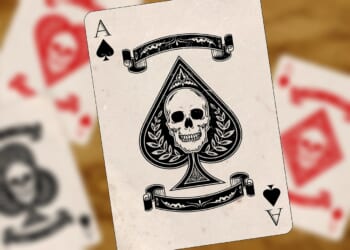Over a three-day excursion into politics, power, and unrecognized satire — terrain in which I felt most at ease — humor seeped from sarcasm. The rules were manly and non-hugging. The gentility was intact. I was behind the lens.
My subject was perfectly cast for a biographer-filmmaker: an independent mind in a suited tie and blazer, somewhere between Lord Byron and H. L. Mencken.
It began not in a studio but in the back of a limo — Thursday night in Washington, D.C., en route to the Cosmos Club. The occasion? Bob Tyrrell’s legendary Saturday Evening Club, which, true to his flair for irony, met on Thursday.
He does not host it — he presides.
The journey began in Old Town Alexandria, at his Southern-facing townhouse, a shrine to manners, memory, and his elegant wife Jeanne, who carries herself with grace that matches the nameplate on the door. His study is book-laden and music-hued, echoing classical battles and cultural wars. The sort of room where one converses, not types.
From there, the story shifted to the car. Cameras rolling. Mics hot. Crew in pursuit. Tyrrell held court in the backseat — just the two of us — already mid-monologue before the wheels left the curb, quipping and retorting like a fencer warming up his wrist.
Tyrrell wasn’t born into iconoclasm. He authored it.
In the radical ferment of 1960s Bloomington, Indiana — where Marx was Gospel and Che Guevara T-shirts passed for theology — he founded The Alternative — not an alternative to the establishment but a counterrevolution to the counterculture.
Cigar in one hand, red pen in the other, he sliced through the dogmas of the New Left with prose that cracked like glass. The writing wasn’t polite. It wasn’t fair. It was literary warfare — conducted in meter, not marching orders.
By the 1970s, The Alternative evolved into The American Spectator, a title fit for an enterprise poised to critique the West’s decline, mock it, serenade it, and drag it into the light. To provide a lighthouse to guide the culture back into port.
Then came the Reagan Revolution. Tyrrell “went to Washington,” and that early seed flowered into a rhetorical cornucopia. Reagan gave way to Bush, and then — to Tyrrell’s chagrin — the Clintons, “The Romantics.”
By the 1990s, Tyrrell had become not just an editor, but provocateur. The American Spectator was no longer a publication. It was ground zero in the cultural war against Clintonism then swooning over “Slick Willie.” Tyrrell smelled rot. With a band of gonzo investigators — including David Brock, pre-defection — he turned whispers into headlines. Whitewater. Troopergate. Paula Jones. The American Spectator didn’t report the news. It created it.
The Clinton machine loathed him. The press scoffed. But when impeachment finally landed, Tyrrell stood, glass in hand, not as a journalist, but as Cassandra-turned-conqueror. Even to buy the scoffing Clinton a bottle of champagne at a D.C. event.
And still, with typical panache, he would send not one but two bottles to Bill-the-hugging, plugging president of rhetorical excess, who had survived scandals far beyond the pants-down moment in the Oval Office.
Tyrrell had survived Bill and thwarted Hillary’s future presidential bid.
Desire the Clintons, Bob was never just a political combatant. He was a stylistic reactionary — a defender of Beethoven, Bach, Mozart, and the Oxford comma. The Spectator was never just conservative. It was civilized.
We spoke of Trump (he predicted the rise in 2013), Bach and Patton, literary skirmishes and musical orders, Toscanini and Furtwängler. Where others sermonized, Tyrrell smirked. Where others raged, he wrapped his venom in velvet.
He showed me a letter from Madonna, who addressed him as “Dude.” He asked me what that meant. I comforted him: “It sounds like the Material Girl approves.”
Critics called him a dandy in the trenches. Admirers knew better — he was a duelist in prose. A wordsmith. A raconteur par excellence disguised in humility. He made conservatism dangerous because he made it fun.
But that’s the myth. I wanted the man. That’s a biographer’s burden.
And yet myths have gravity. Between takes — in drawing rooms, in passing glances — you glimpse the man behind the smirk. The blade is still sharp, but the hand, now older, carries the weight of reflection. Legacy has become the dominant chord.
“Who,” he mused one twilight, “will carry the flame?” “I think we’re sparking it now,” I answered.
He paused as I fired off my final questions, gazing out toward the swamp. I pressed gently, “I don’t mean to probe, but I want to know your story.”
Ever the devilish mentor, he turned with a half-grin and fired back, “I want you to tell my story.” Then came the smirk.
I sat back, in a dramatic pause, imagined a sip and raised glass, and smiled, knowing he was silently wondering:
Does this film guy know how to use a semicolon?













